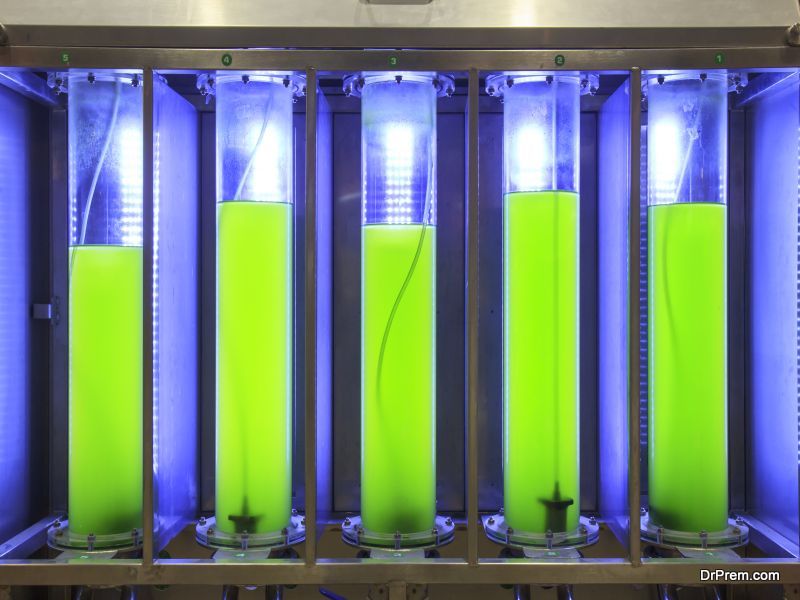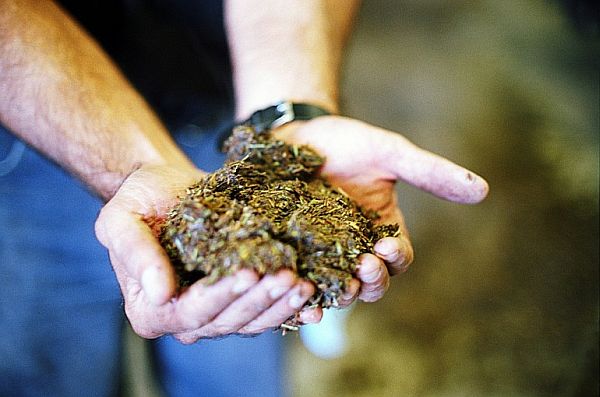Algae biofuel, or the third-generation biofuel, is gaining a lot of attention due to its potential to provide clean energy. Considered as the biofuel of future, this source can yield 30-percent more energy than first or second generation biofuel crops. Being carbon-neutral, this green biofuel is also a better option compared to conventional petroleum products.
Why algae?
Algae can grow anywhere, even in the harsh climatic conditions, like weeds, so one doesn’t have to rely on a specific region for its growth. According to a 2013 journal Bioresource Technology, algae biofuel is the only natural energy source that reduces 50 to 70-percent of carbon dioxide emissions. Moreover, algae can produce 60 times more biofuel as compared to any other land-based plant. This is the main reason experts and researchers are seeing it as the biofuel of the future. Once converted into biofuel, algae is less toxic compared to other petroleum-based fuels.
Advantages of algae biofuel
-
High energy content
Due to its high energy content, algae is able to produce an immense amount of biomass with very less effort. This natural source of energy can yield 60 time more energy per unit area as compared to other biofuel crops. As per the US Department of Energy, algae can yield 100 times more biofuel compared to some other terrestrial oil-generating crops.
-
Faster growth
A good characteristic of algae is that it can grow faster than other oil-yielding crops. Like most crops, algae also grows in the presence of natural sunlight, water, and carbon dioxide. Just a per unit area yield of algae can produce nearly 5,000 to 20,000 gallons of biomass. This is obviously more than any of the natural biomass resources available today.
The best thing about this green beast is that it can grow on any land where ordinary crops can’t. It can even grow around non-potable water that’s not suitable for farming. Moreover, it doesn’t even require fertilizers or insecticides for growth.
-
Doesn’t affect freshwater resources
Another advantage of algae as a biofuel is that it can easily grow anywhere near water bodies, without affecting freshwater resources. It can also grow near any ocean or water resource. Being biodegradable in nature algae has no negative impact on the environment – from production to bio-degradation phase.
-
Consumes huge amount of carbon dioxide
As we all know, carbon emission is the main cause of climatic change and has several adverse effects on the environment. Here enter the algae, that consumes the major portion of carbon dioxide from the atmosphere. Each gallon of algae oil can consume nearly 13 to 14 kilograms of carbon dioxide. It has the potential to replace all other polluting fuels like methane, gasoline, diesel and jet fuel. Therefore, it is being considered as the best natural biofuel so far.
Disadvantages
With pros comes cons, and one of the major drawbacks of algae biofuel is that its production cost is too expensive. The cost of producing different species of algae is between $5 to $10 per kilogram. Therefore, these resources are not quite economical for commercial production. Although many experts are seeing future of biofuel in this natural resource, it still needs to undergo a lot more testing and research for its commercial production.
Algae-based biofuel is in the stages of development, but certain issues need to be resolved before considering it the future of biofuel.






